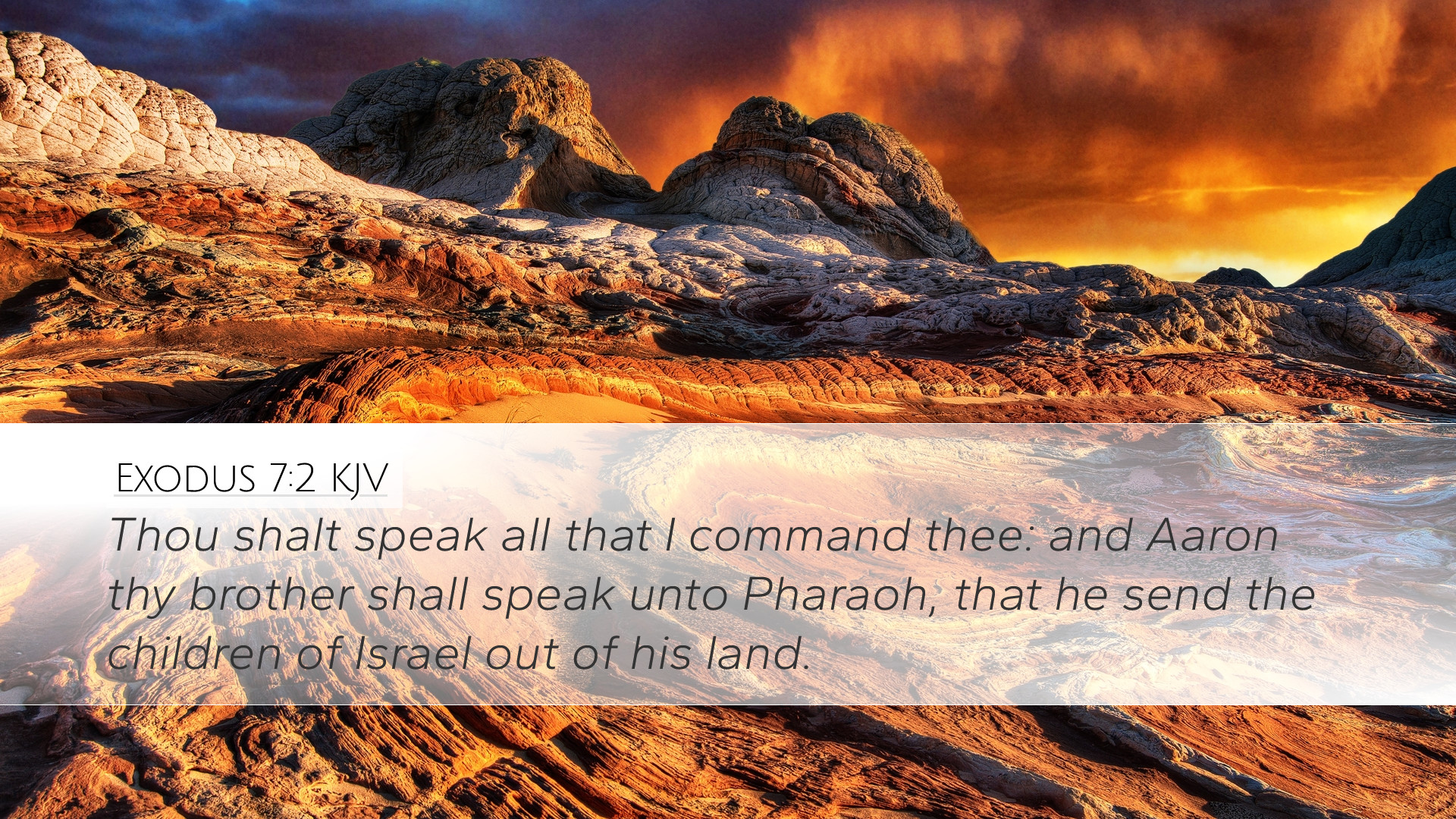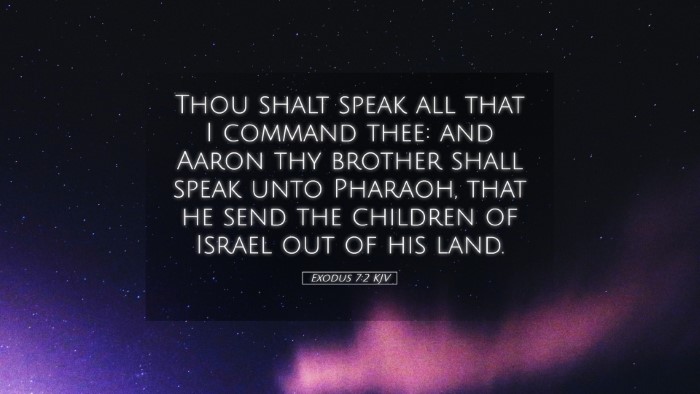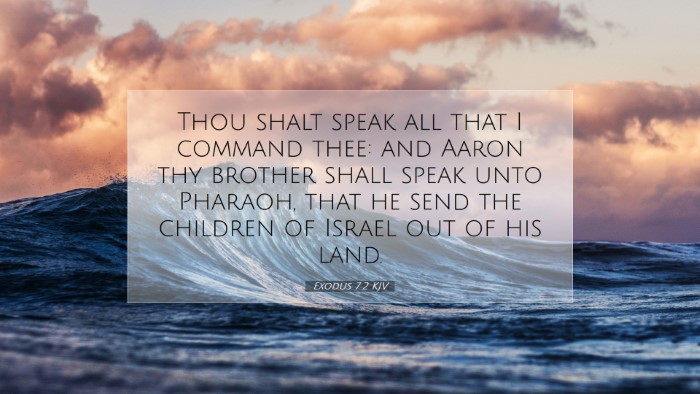Commentary on Exodus 7:2
Verse Context: Exodus 7:2 states, "You shall speak all that I command you, and your brother Aaron shall speak to Pharaoh to let the children of Israel go out of his land."
Introduction
This verse is pivotal, marking the beginning of the direct confrontation between Moses, Aaron, and Pharaoh. It reflects God’s command to Moses to act as His mouthpiece. In the light of public domain commentaries, we see various insights that illuminate the significance of this command and its implications for the mission of Moses and Aaron.
Divine Authority and Human Responsibility
As Matthew Henry notes, this command underscores a dual aspect of divine calling: the divine authority of God’s words and the human responsibility to convey those words faithfully. The phrase “speak all that I command you” highlights the necessity of obedience in ministry. This obedience is not simply to convey information but to relay God’s will with accuracy and reverence.
Faithfulness in Communication
Albert Barnes elaborates on the importance of exactitude in communication. He emphasizes that Moses must not alter the message of God, implying that any deviation could lead to disastrous consequences. This reflects the nature of prophetic ministry where the integrity of the message is critical to its reception and effectiveness.
The Role of Aaron
The involvement of Aaron is noteworthy. Adam Clarke suggests that Aaron serves as a companion and spokesperson for Moses. This joint ministry exemplifies the principle that God often calls individuals to work in partnership. The dynamic between Moses and Aaron serves as a model for collaborative leadership in spiritual endeavors.
Significance of Brotherhood
Furthermore, the biblical notion of brotherhood in ministry signifies support, accountability, and unity. This partnership not only prepares them for the daunting task ahead but also serves as a theological reflection on the necessity of community in fulfilling God’s purpose.
Contextual Implications
In examining the broader context, it is important to recognize the historical and social environment of Israel's captivity. As Matthew Henry outlines, the command given in Exodus 7:2 occurs during a time of deep oppression. The delivering message is not just about their physical release but about their spiritual liberation under God's covenant.
Covenant and Redemption
This highlights a rich theological underpinning where the call to speak to Pharaoh can be seen as a proclamation of the covenant that God established with Israel. As Clarke points out, the deliverance anticipated is not merely a political evacuation but a divine intervention aimed at restoring Israel's relationship with God.
Application for Today
The insights from these commentaries provide profound lessons for contemporary readers, especially pastors and theologians.
Call to Obedience
- Obedience to God: There remains an ongoing call for believers to communicate God’s message without alteration and with absolute fidelity.
- Collaborative Ministry: Just as Moses had Aaron, current leaders are encouraged to seek partnerships that strengthen their ministry.
- Covenantal Understanding: Understanding the nature of God's promises and His desire to redeem is crucial for effectively ministering to those in spiritual and physical bondage.
Conclusion
Exodus 7:2 is rich with meaning, underscoring themes of divine authority, obedience, and community in ministry. Through the lens of classic commentaries, we gain a clearer vision of how this ancient text remains relevant, inviting modern readers to engage deeply with the urgency of God’s call and the profound implications it has for mission and ministry today.


